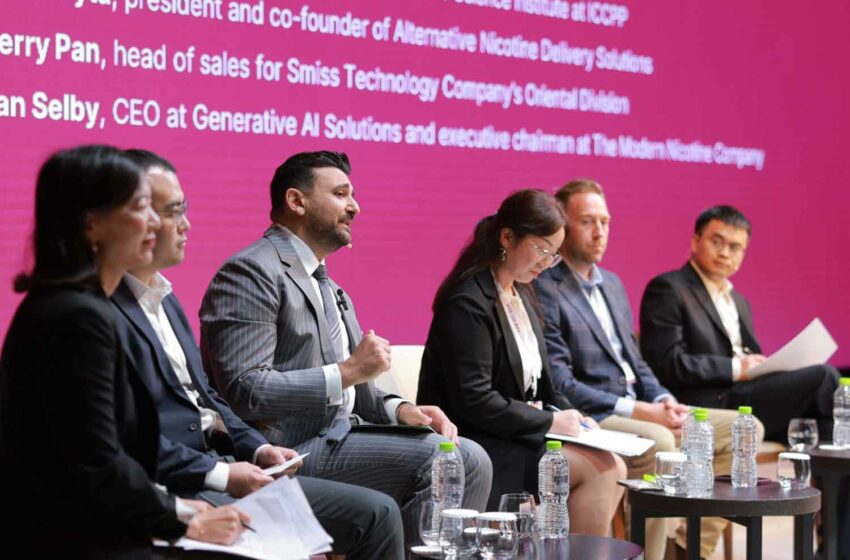Panel: Pathways to Sustainability


The panel discussion “Pathways to Sustainability” explored how different companies approach the topic and navigate the path to a sustainable future.
Christopher Fleury, senior vice president of regulatory affairs research at Ipsos, who moderated the panel, started off with a simple statement: “Promoting sustainability is a priority for businesses, but it is not easy.” This idea of sustainability being a complex goal remained a theme throughout the discussion.
Each panelist brought a different perspective to the conversation. Ana Krasojevic, sustainability strategy and reporting director at Japan Tobacco International, offered corporate sustainability insight, noting that to achieve sustainability in any aspect requires full commitment.
Sudhanshu Patwardhan, HealthTech entrepreneur and director of the Center for Health Research and Education, brought in the consumer perspective, having worked with many consumers in a medical capacity. He noted that sustainability brings with it a broader discussion of society at large and the environment.
Diane Raverdy-Lambert, chief scientist and director of regulatory affairs at SWM, discussed the papers side of sustainability and how SWM looks at the entire life cycle of papers when creating their products. She also reiterated that “data is data” and “science should be irrefutable.”
Michiel Reerink, international affairs director at Alliance One International (AOI) and managing director at AOI GmbH, addressed the agricultural side of sustainability, discussing how AOI works with farmers in Malawi to ensure they are using sustainable wood sources and are able to generate additional sources of income by growing crops like groundnuts. Sustainability is about the farmer relationship, he said, noting that it is not an isolated action but requires the whole supply chain to be involved.
As the conversation progressed, Krasojevic noted three key aspects in thinking about sustainability and how to implement sustainable practices: taking decisions in a balanced way; taking a multi-stakeholder view; and looking at how the company impacts the external world and how the external world impacts the company. In her view, sustainability is embedded in “each and every business function” and is “circular.”
The panel also discussed how sustainability has changed, noting that younger talent has strong expectations regarding sustainable practices and that it’s important to have standardized frameworks, like those of the United Nations’ Sustainable Development Goals (SDGs), that allow everyone to “speak the same language.” Standardization allows for something concrete rather than an “abstract story.”
Much was said about the SDGs, with an emphasis on industry and consumers taking part in discussions and engagement. Patwardhan expressed that more of the SDGs should be discussed and engaged with by industry. The question was also posed as to whether the voices of the customer, the citizen and the smoker are saying the same thing. Ultimately, the panel seemed to agree that communication is important in achieving sustainability. Reerink noted that in many countries, companies are not allowed to communicate the sustainability of their products to consumers. Communication with consumers is extremely important, however, and misinformation regarding nicotine and tobacco products needs to be addressed, he noted.
Sustainability is the new norm, according to the panel, and it drives innovation and a sense of purpose for companies. The ongoing question is how does the industry transform itself to be more responsible to the consumers and broader society? “Let’s not be reactive to everything that’s thrown at us,” Patwardhan said, referring to the industry at large. “If we are reactive, only we are to blame for the eventual outcomes. If we are proactive, there are benefits to be for the broader society.”